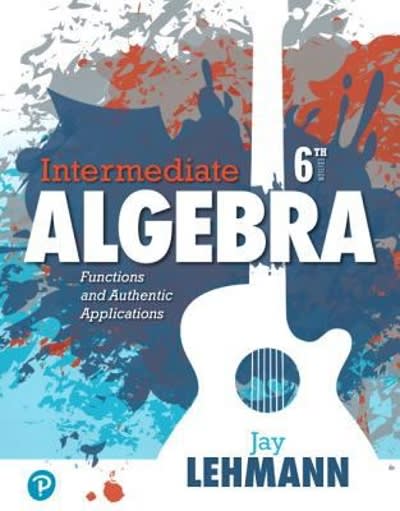Question
Assignment 1 is worth 10 marks. The purpose and intent of the assignment is to help you better understand the relations between three different distributions:
Assignment 1 is worth 10 marks. The purpose and intent of the assignment is to help you better understand the relations between three different distributions: 1. the distribution of values in the population, 2. the distribution of values in a sample, and 3. the sampling distribution of the mean. Think of the 6/49 lottery as sampling from a population (which it really is!). The population would be the balls in the tumbler with the numbers 1 to 49. Balls are drawn one at a time. Once a ball is drawn it cannot be drawn again in that draw. Six balls are draws plus one extra ball. For the purposes of this assignment, only the six regular numbers are used. In the lottery, the idea is to match the numbers drawn. In this assignment, we are not interested in matching the numbers but in the mean of the six regular numbers. The data set consists of the numbers drawn for all the 6/49 draws since the inception of the lottery. The data is found in an Excel spreadsheet on the course website. Each draw consists of seven numbers, six regular numbers and one bonus number. For the purposes of this assignment, we will only consider the regular six numbers. The regular numbers are not reported in the order they were drawn but from smallest to largest. This does not make any difference for our purposes. Taking sample after sample tells us something about the variability that arises from chance. Here, we are interested in the mean. The mean of the values in a sample is taken as an estimate of the mean of the values in a population. With all calculations, include the formula that you used. 1In all calculations give 4 decimal places. The population of 49 balls in the hopper 1. Let's start with a few questions about the population. The population is the complete set of elements from which the samples are drawn. a. What is the level of measurement? Is it nominal, ordinal, interval, or ratio? b. Give an appropriate graphical representation of the population. Sampling from the 49 balls in the hopper 2. Each draw can be thought of as taking a sample from this population. a.What sampling strategy was used? b.Were the samples taken with or without replacement? c.How many different samples are possible considering that order does not matter? d.What is the size of the samples? e.How big are the samples compared to the size of the population? Is this considered a big sample or a small sample? What are the implications of this?
Step by Step Solution
There are 3 Steps involved in it
Step: 1

Get Instant Access to Expert-Tailored Solutions
See step-by-step solutions with expert insights and AI powered tools for academic success
Step: 2

Step: 3

Ace Your Homework with AI
Get the answers you need in no time with our AI-driven, step-by-step assistance
Get Started


